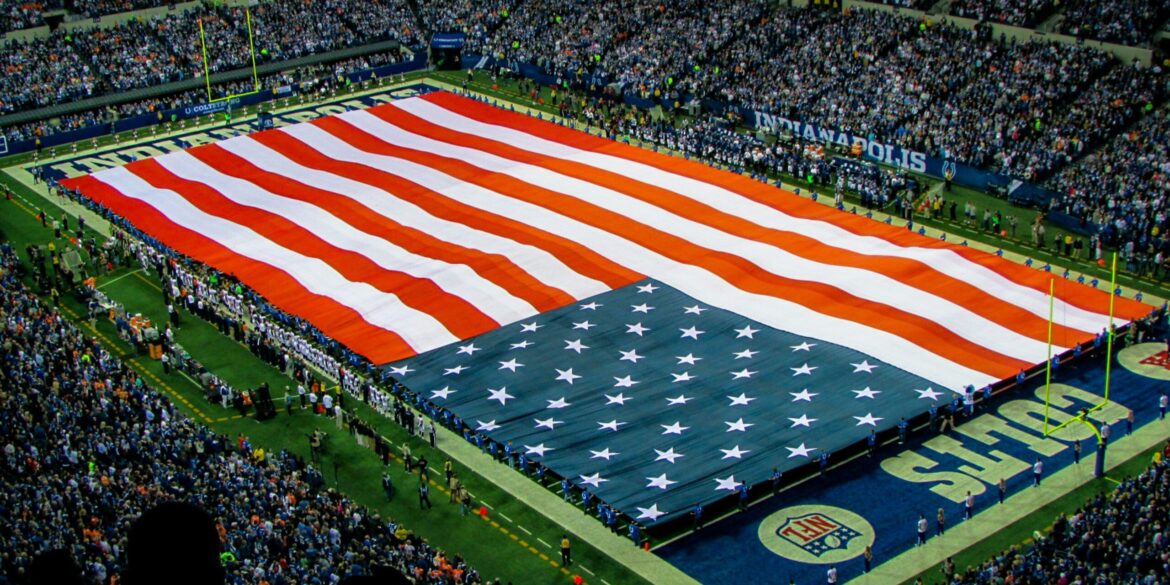In a historic move for American football and the Olympic movement, the National Football League (NFL) has officially approved the inclusion of flag football in the 2028 Summer Olympics, scheduled to be held in Los Angeles. This landmark decision marks the first time any form of football will be featured in the Olympic Games, showcasing the sport’s growing global appeal and the increasing popularity of its non-contact variation, flag football.
A New Chapter for American Football on the World Stage
Flag football, a version of the sport that replaces traditional tackling with the removal of a flag from the ball carrier, offers a safer and more accessible alternative to tackle football. This format significantly reduces the risk of injury, making it appealing to a broader demographic, including youth players, women, and those who may be hesitant to engage in contact sports. The Olympic debut of flag football is anticipated to dramatically raise the sport’s profile worldwide and introduce American football culture to a vast international audience.
The NFL’s endorsement of flag football’s Olympic bid aligns with a broader strategy to globalize American football. Partnering closely with the International Olympic Committee (IOC) and USA Football, the league is spearheading initiatives to promote youth engagement, enhance female participation, and stimulate the sport’s development in emerging markets.
Strategic Moves to Grow the Game Globally
The NFL’s push to bring flag football to the Olympics reflects a recognition that expanding the sport’s footprint beyond its traditional strongholds is vital for its long-term growth. According to recent participation data, flag football has experienced significant increases in popularity not just in the United States but also in Europe, Asia, and Latin America, driven largely by its accessibility and fast-paced gameplay.
USA Football, the sport’s national governing body, has ramped up efforts to build infrastructure, coaching programs, and competitive leagues across diverse regions, focusing especially on inclusivity. This includes targeted campaigns to encourage female athletes to participate, in line with the Olympic movement’s emphasis on gender equity.
The Tom Brady Effect: Star Power and Speculation
One of the most captivating elements of the announcement is speculation surrounding former NFL superstar Tom Brady’s potential involvement in the Olympic effort. Widely regarded as one of the greatest quarterbacks in NFL history, Brady retired recently but has remained deeply connected to football through coaching, media ventures, and philanthropic work.
Fans and media outlets have speculated that Brady might come out of retirement to lead Team USA’s flag football squad in the 2028 Olympics. While Brady himself has not publicly confirmed such plans, his mere association with the sport adds star power and legitimacy to flag football’s Olympic debut.
“Having a figure like Tom Brady potentially lead the team would be a game-changer,” said sports analyst Rachel Meyer. “His leadership could inspire a new generation of athletes and capture global attention, further elevating flag football’s stature on the international stage.”
Economic and Cultural Impact for Los Angeles
The introduction of flag football into the Olympic program is expected to bring considerable economic and cultural benefits to Los Angeles. Known as a sports and entertainment capital, the city’s hosting of the 2028 Summer Games has already been framed as an opportunity for innovation and inclusivity in sport.
Flag football’s fast-paced, spectator-friendly format is well-suited for broadcast audiences and in-person attendance alike, making it a potential crowd favorite. The event is projected to draw significant viewership, adding to the overall success and excitement of the Games.
Local businesses, tourism boards, and media companies are gearing up to capitalize on the new sport’s arrival, planning specialized marketing campaigns and fan engagement activities centered around flag football.
Building on a Growing Global Movement
The journey to Olympic inclusion has been propelled by the efforts of the International Federation of American Football (IFAF), which has worked to standardize rules, organize world championships, and create pathways for nations to compete at the highest levels.
IFAF’s initiatives have been instrumental in fostering competitive play and increasing participation worldwide. Recent world championships have showcased rising talent from countries outside the traditional American football powerhouses, signaling the sport’s expanding global reach.
Addressing Critics and Embracing Opportunities
Some critics caution that traditional tackle football remains far more popular, especially in the United States and a handful of other countries. They argue that flag football, while safer and more accessible, may not carry the same cultural significance or excitement as its full-contact counterpart.
However, proponents counter that flag football’s inclusion in the Olympics represents an opportunity to broaden the sport’s appeal and develop it in countries where tackle football has struggled to gain traction due to safety concerns or logistical barriers.
“The Olympic platform is uniquely positioned to accelerate flag football’s growth,” noted sports development expert Mark Delaney. “It offers a global stage and a set of values that align perfectly with flag football’s inclusive and family-friendly nature.”
Preparation and Future Prospects
As the 2028 Olympics approach, USA Football and other national governing bodies are intensifying preparations. Training camps, scouting programs, and youth development initiatives are underway to assemble competitive Olympic teams.
Flag football’s debut in Los Angeles will also serve as a testbed for potential inclusion in future Olympic Games, depending on the sport’s success and reception.
For fans and newcomers alike, the arrival of flag football offers a fresh, exciting way to experience American football’s dynamics in a new format that emphasizes speed, skill, and sportsmanship without the risks of heavy contact.


